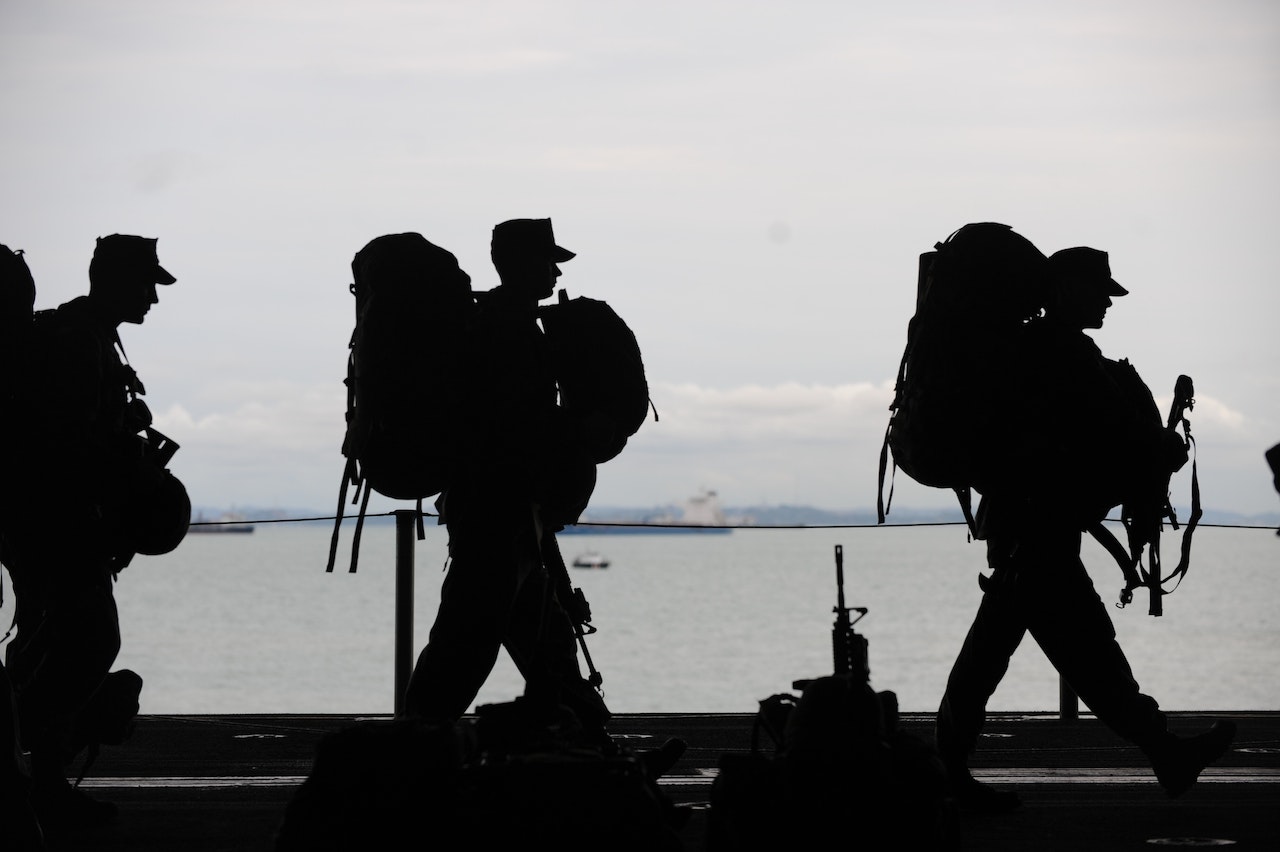Comments
- No comments found

The National Archives serves as the custodian of our nation's history, safeguarding documents that capture the essence of American heritage.
Among these documents are military records, vital not just as historical artifacts but as lifelines for countless veterans and their families. This repository not only maintains these records but also ensures their accessibility for legal, academic, and personal use. In today's blog, we will delve into the multi-dimensional role of the National Archives in the preservation and accessibility of military records. From the intricacies of the documents themselves to the state-of-the-art preservation methods, from providing vital support for academic research to aiding veterans in accessing their records—this institution plays a pivotal role. So, whether you're a history buff, a curious citizen, or a veteran wanting to learn more about your own records, read on to discover the key functions and challenges of the National Archives in maintaining this critical aspect of American life.

Military records are more than just paper trails; they are comprehensive archives that encapsulate a service member's career, benefits, and contributions to the nation. These records can be broadly categorized into two main types.
Service Records provide a detailed account of a service member's career, including enlistment, deployments, promotions, and discharge status. These records are crucial for various legal protections under the Servicemembers Civil Relief Act (SCRA), such as interest rate reductions and eviction protections.
Medical Records document the healthcare services received during a service member's time in the military. They contain essential data like diagnoses, treatments, and medical evaluations. These records are vital when applying for medical benefits and can be referenced for SCRA protections related to health care.
Understanding what comprises these military records is the first step in unlocking a wealth of information useful for a variety of applications, from academic research to personal benefits. As we will explore, the National Archives plays an indispensable role in preserving these vital documents.

The National Archives wears multiple hats when it comes to the stewardship of military records. Its core functions can be broken down into three major categories: Preservation, Accessibility, and Research and Academic Support.
The Archives use cutting-edge technologies and methodologies to keep military records in impeccable condition. This includes climate-controlled environments, archival-quality materials, and digital preservation techniques. These measures ensure that the records remain intact for future generations, maintaining the integrity of the historical data they contain.
One of the primary responsibilities of the National Archives is to make military records available to those who have a legitimate need for them. Veterans, family members, researchers, and even the general public can request access to various types of records. This function is vital, as these documents often serve as proof for benefit claims, academic research, or genealogical studies.
The Archives also play a crucial role in supporting scholarly activities. Researchers and academics can gain special access to a vast array of documents, aiding in studies that range from military history to sociology and law. The Archives often partners with educational institutions to facilitate this research, acting as a hub for scholarly endeavors.
Through these core functions, the National Archives sustains the lifeline of information that is military records. It ensures their preservation for posterity, provides access for a myriad of uses, and supports academic investigations that broaden our understanding of military service and its impact on American society.

The process of accessing military records through the National Archives is a streamlined yet secure system designed to accommodate a range of needs. Whether you're a veteran or a family member, the following steps will guide you through the process of accessing these vital documents.
First, a formal request must be submitted to the appropriate department within the National Archives, specifying the documents you're interested in. The request can be made online, via mail, or through a personal visit, depending on the nature of the records sought. Forms like the Standard Form 180 (SF-180) are commonly used for this purpose.
Identity verification is a crucial part of the process to ensure the confidentiality and security of the records. This generally involves providing official identification and, in some cases, documentation proving a relationship to the veteran if the requester is a family member.
The time it takes to process a request can vary based on the complexity and age of the records. Older records may take longer to retrieve, especially if they are stored in off-site locations. However, the National Archives is committed to accommodating urgent needs whenever possible. Special considerations are given for expedited service, particularly if the records are required for medical emergencies, funeral arrangements, or time-sensitive legal matters.
Gaining access to military records is more than a bureaucratic procedure; it's a gateway to numerous benefits, services, and historical insights. Understanding this process is key for veterans and their families, as well as researchers and academics who rely on this invaluable resource.
While the National Archives plays an indispensable role in preserving and providing access to military records, it is not without its set of challenges and controversies.
One significant concern is the potential loss or damage to records. Instances like the 1973 fire at the National Personnel Records Center resulted in the loss of millions of military personnel files. Such incidents highlight the importance of modern preservation techniques, but they also underline the vulnerabilities inherent in safeguarding vast volumes of data.
The National Archives faces a delicate balancing act between making records accessible and maintaining individual privacy. There's an ongoing debate about which records should be made public and which should be restricted, especially given the sensitive nature of certain information in military records.
As technology evolves, the National Archives is confronted with the challenge of digitizing paper records for easier access and safer storage. This digital transition brings along its own set of concerns, such as data corruption, cyber threats, and the hefty financial investment required for such massive undertakings.
Despite these challenges, the National Archives continues to evolve and adapt, striving to serve as a reliable steward of military records. Understanding these issues not only gives us a nuanced view of the institution but also shapes the discourse on how to improve this vital service.
The future of military records at the National Archives is inevitably tied to advancements in technology and policy shifts. As we move further into the digital age, the Archives is increasingly adopting state-of-the-art technologies to digitally preserve records. Such initiatives not only bolster the Archives' disaster recovery capabilities but also make records more easily accessible to the public and researchers.
Moreover, there's a growing emphasis on collaboration with educational institutions, technology partners, and government agencies to ensure that best practices are adopted for record-keeping and preservation. New policies may also emerge to address the ever-present privacy concerns while still promoting transparency and accessibility.
In essence, the future looks like a fine balance between technology and ethical considerations, aimed at enhancing efficiency while still upholding the integrity of the records. As these advancements unfold, the National Archives will continue to be an invaluable resource for veterans, academics, and anyone interested in America's military history.
The National Archives serves as the linchpin in the preservation and accessibility of military records, fulfilling roles that extend from historical preservation to legal verification and academic research. Despite facing challenges like data loss, privacy issues, and the daunting task of modernization, the institution remains steadfast in its mission. As we look to the future, a blend of technological innovation and ethical governance seems poised to make these records even more accessible and secure. Understanding the pivotal role that the National Archives plays not only enriches our view of the institution but underscores its vital contribution to American society and history.
Leave your comments
Post comment as a guest